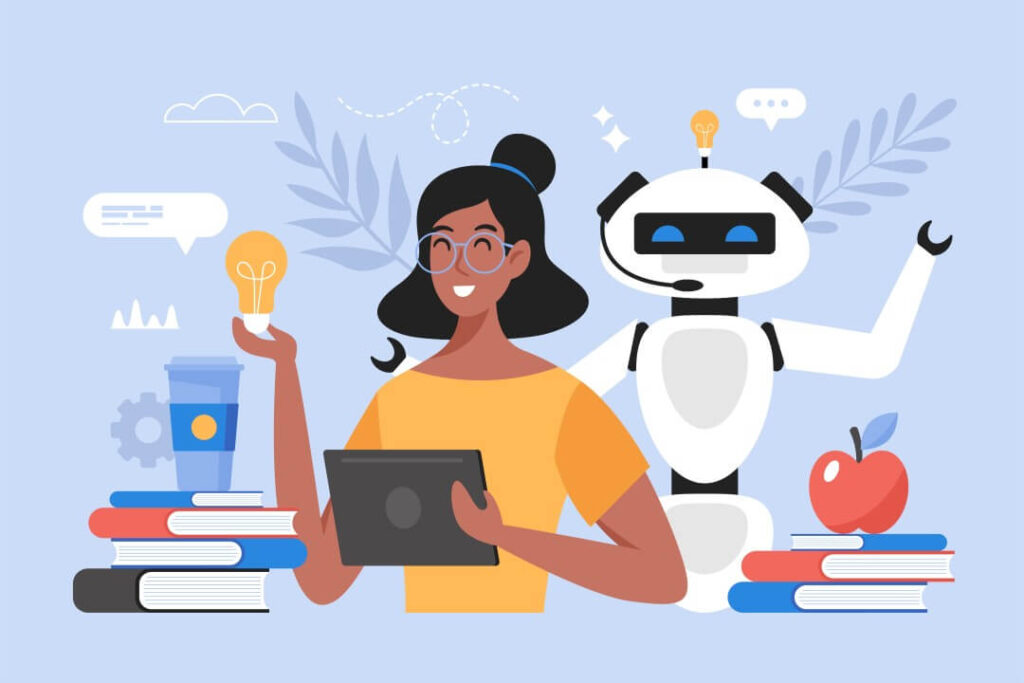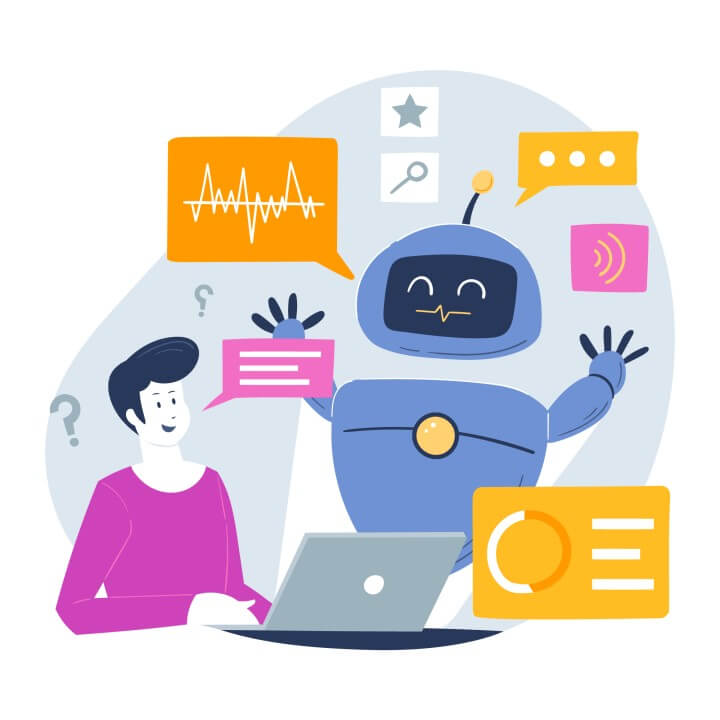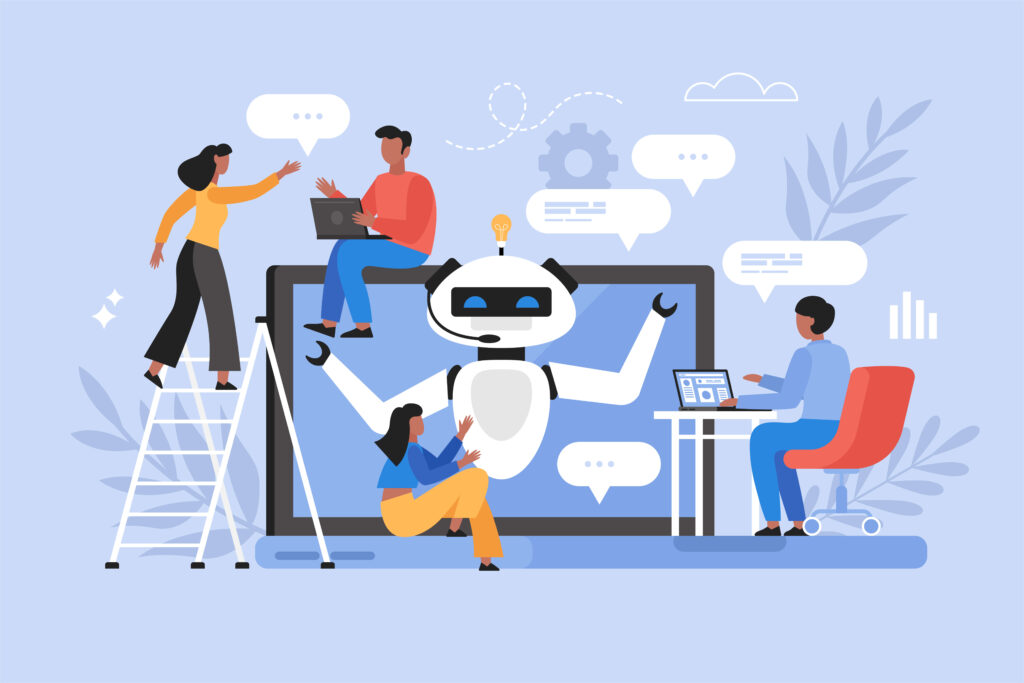
Are you ready to dive into the world of Artificial Intelligence (AI) and land yourself a dream job in this cutting-edge field? Whether you’re a seasoned AI professional or just starting your journey, this comprehensive guide will walk you through the top 10 AI job vacancies that are hot in the market right now. From data scientists to machine learning engineers, we’ve got you covered.
Data Scientist: Turning Data into Gold
What is a Data Scientist? In the world of AI, data is the lifeblood. Data Scientists are the wizards who turn raw data into valuable insights. They design experiments, analyze data, and build predictive models.
Why Become a Data Scientist?
- Lucrative salaries and high demand.
- Solve complex real-world problems.
- Influence business decisions with data-driven insights.
How to Get Started?
- Master programming languages like Python and R.
- Learn data manipulation and visualization.
- Familiarize yourself with machine learning algorithms.
- Build a strong portfolio of projects.
Machine Learning Engineer: The Architects of AI
What is a Machine Learning Engineer? These engineers are the architects of AI systems. They design and implement machine learning models that power AI applications, from recommendation engines to self-driving cars.
Why Become a Machine Learning Engineer?
- Shape the future of AI technology.
- High earning potential.
- Work on innovative projects.
How to Get Started?
- Develop a strong foundation in mathematics and statistics.
- Learn machine learning libraries like TensorFlow and PyTorch.
- Work on hands-on machine learning projects.
- Keep up with the latest research in AI.
AI Research Scientist: Pushing the Boundaries
What is an AI Research Scientist? These are the pioneers of AI, pushing the boundaries of what’s possible. They conduct cutting-edge research to develop new AI algorithms and techniques.
Why Become an AI Research Scientist?
- Contribute to the evolution of AI.
- Intellectual challenge and innovation.
- Collaborate with top minds in the field.
How to Get Started?
- Pursue a Ph.D. in AI-related fields.
- Publish research papers in reputable conferences.
- Join AI research labs.
- Stay curious and passionate about AI.
AI Ethicist: Navigating the Moral Maze

What is an AI Ethicist? In the age of AI, ethics matter more than ever. AI Ethicists ensure that AI systems are developed and used responsibly and ethically, addressing issues like bias and privacy.
Why Become an AI Ethicist?
- Make a positive impact on society.
- Advocate for fairness and transparency.
- Work at the intersection of technology and ethics.
How to Get Started?
- Study ethics and philosophy.
- Stay updated on AI ethics guidelines.
- Collaborate with AI development teams.
- Be an advocate for ethical AI practices.
Computer Vision Engineer: Teaching Machines to See
What is a Computer Vision Engineer? These engineers focus on teaching machines to interpret and understand visual information, enabling applications like facial recognition and autonomous vehicles.
Why Become a Computer Vision Engineer?
- Shape the future of visual AI.
- Diverse applications in healthcare, automotive, and more.
- High demand for expertise.
How to Get Started?
- Learn image processing and deep learning.
- Work on computer vision projects.
- Explore OpenCV and other libraries.
- Understand 3D computer vision concepts.
Natural Language Processing (NLP) Engineer: Conversing with Machines
What is an NLP Engineer? NLP Engineers specialize in making machines understand and generate human language. They build chatbots, language models, and translation systems.
Why Become an NLP Engineer?
- Revolutionize communication between humans and machines.
- Thriving job market.
- Opportunities in healthcare, customer service, and more.
How to Get Started?
- Learn NLP libraries like NLTK and spaCy.
- Study linguistics and language models.
- Work on NLP projects, such as sentiment analysis.
- Keep an eye on NLP research.
AI Product Manager: Bridging Tech and Business
What is an AI Product Manager? AI Product Managers bridge the gap between technical teams and business objectives. They define the AI strategy and ensure products meet market needs.
Why Become an AI Product Manager?
- Lead AI product development.
- High earning potential.
- Influence product direction.
How to Get Started?
- Develop a strong understanding of AI.
- Hone your project management skills.
- Gain experience in product management.
- Communicate effectively with technical and non-technical teams.
Robotics Engineer: Bringing AI to Life
What is a Robotics Engineer? These engineers bring AI to life in physical forms. They design and build robots that can navigate the real world, from drones to robotic arms.
Why Become a Robotics Engineer?
- Combine AI with the physical world.
- Explore diverse applications in healthcare, manufacturing, and more.
- Be at the forefront of technological innovation.
How to Get Started?
- Master robotics frameworks like ROS.
- Learn control theory and sensor integration.
- Build and program robots for various tasks.
- Stay updated on robotics trends.
AI Data Analyst: Unveiling Hidden Patterns
What is an AI Data Analyst? AI Data Analysts uncover hidden patterns and insights within large datasets. They work closely with data scientists to support decision-making.
Why Become an AI Data Analyst?
- Entry point into the AI field.
- Develop strong data analysis skills.
- Collaborate with AI experts.
How to Get Started?
- Learn data analysis tools like SQL and Excel.
- Understand data visualization techniques.
- Gain experience with data manipulation.
- Build a portfolio showcasing data analysis projects.
AI UX Designer: Enhancing User Experiences

What is an AI UX Designer? AI UX Designers focus on creating seamless and intuitive user experiences for AI-powered products, ensuring users can harness AI’s capabilities effectively.
Why Become an AI UX Designer?
- Combine creativity with AI technology.
- Shape user interactions with AI.
- Work in a dynamic and evolving field.
How to Get Started?
- Study user experience design principles.
- Learn about AI user interfaces.
- Gain proficiency in design tools like Sketch and Figma.
- Collaborate with AI development teams.
The AI job market is booming, offering a plethora of exciting opportunities for those with a passion for technology and innovation. Whether you’re drawn to the data-driven world of a Data Scientist or the ethical considerations of an AI Ethicist, there’s a role in AI that’s just right for you.
Remember, the AI landscape is constantly evolving, so staying curious, up-to-date with the latest trends, and continuously learning is key to a successful career in AI. So, which AI job vacancy speaks to your aspirations? It’s time to take the plunge into the world of AI and embark on a rewarding career journey.
Frequently Asked Questions (FAQ)
Welcome to our FAQ section, where we address some of the common queries related to AI job vacancies and career prospects. If you have questions about pursuing a career in Artificial Intelligence, you’re in the right place.
1. What are the key skills required to excel in AI careers?
To excel in AI careers, you should have a strong foundation in programming languages such as Python, knowledge of mathematics and statistics, proficiency in machine learning frameworks like TensorFlow and PyTorch, and the ability to work with data. Additionally, soft skills like problem-solving, critical thinking, and communication are valuable.
2. Are there job opportunities for beginners in AI?
Yes, there are entry-level AI positions such as AI Data Analyst and AI UX Designer that are suitable for beginners. These roles provide an excellent starting point to gain experience and build a career in AI.
3. What’s the earning potential in AI careers?
Earning potential in AI careers varies depending on your role, experience, and location. However, AI professionals generally enjoy competitive salaries, often exceeding the average for other IT roles. Senior positions like AI Research Scientist and Machine Learning Engineer typically offer higher compensation.
4. Do I need a Ph.D. to work in AI?
While a Ph.D. can be beneficial for research-oriented roles like AI Research Scientist, it’s not always necessary. Many AI positions, including Data Scientist, Machine Learning Engineer, and AI UX Designer, require a bachelor’s or master’s degree in relevant fields and practical experience.
5. How can I stay updated on the latest developments in AI?
Staying updated in AI is crucial. You can achieve this by following AI research papers, attending conferences and workshops, joining AI communities online, and enrolling in online courses and certifications. Continuous learning is essential in this rapidly evolving field.
6. What are the ethical considerations in AI careers?
AI professionals should be aware of ethical concerns in AI, including bias in algorithms, data privacy, and the impact of AI on society. AI Ethicists play a crucial role in addressing these concerns and ensuring that AI is developed and used responsibly.
7. Can I transition from a non-tech background to an AI career?
Yes, it’s possible to transition to an AI career from a non-tech background. Start by gaining foundational knowledge in programming and AI concepts through online courses and self-study. Building a strong portfolio of AI projects can help you demonstrate your skills to potential employers.
8. What are the industries that offer AI job opportunities?
AI has applications in various industries, including healthcare, finance, e-commerce, automotive, and more. You can find AI job opportunities in almost any sector where data analysis and automation can provide value.
9. How can I prepare for AI job interviews?
Preparing for AI job interviews involves brushing up on technical skills, reviewing AI algorithms and concepts, and practicing problem-solving. Additionally, be ready to discuss your past projects and demonstrate your problem-solving abilities.
10. Are there AI job opportunities for remote work?
Yes, many AI positions offer remote work options, especially in the post-pandemic world. However, the availability of remote work may vary by company and role, so it’s essential to check job listings for specific details.